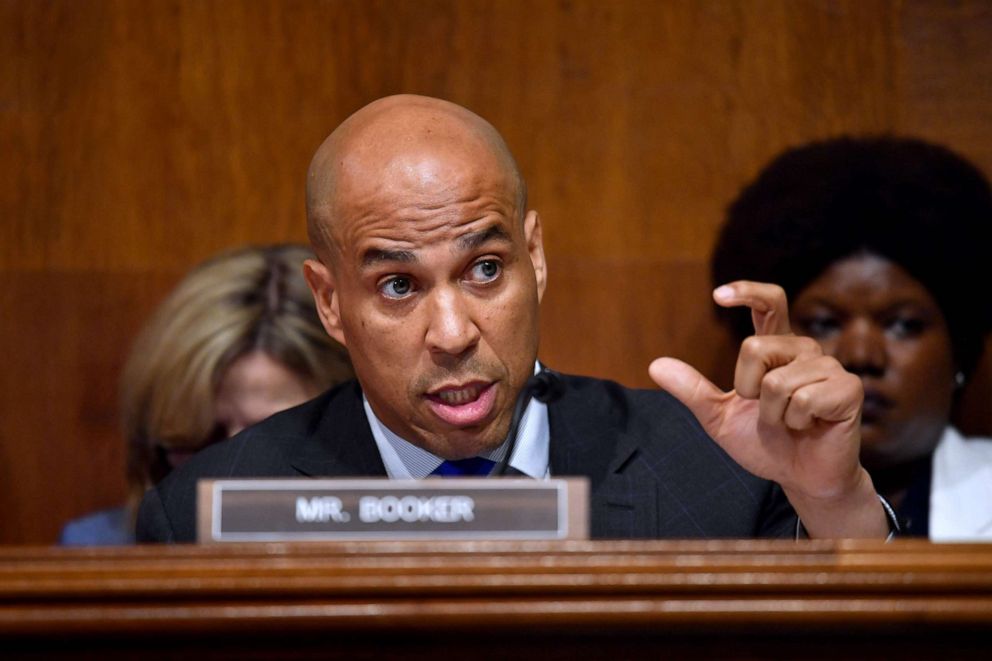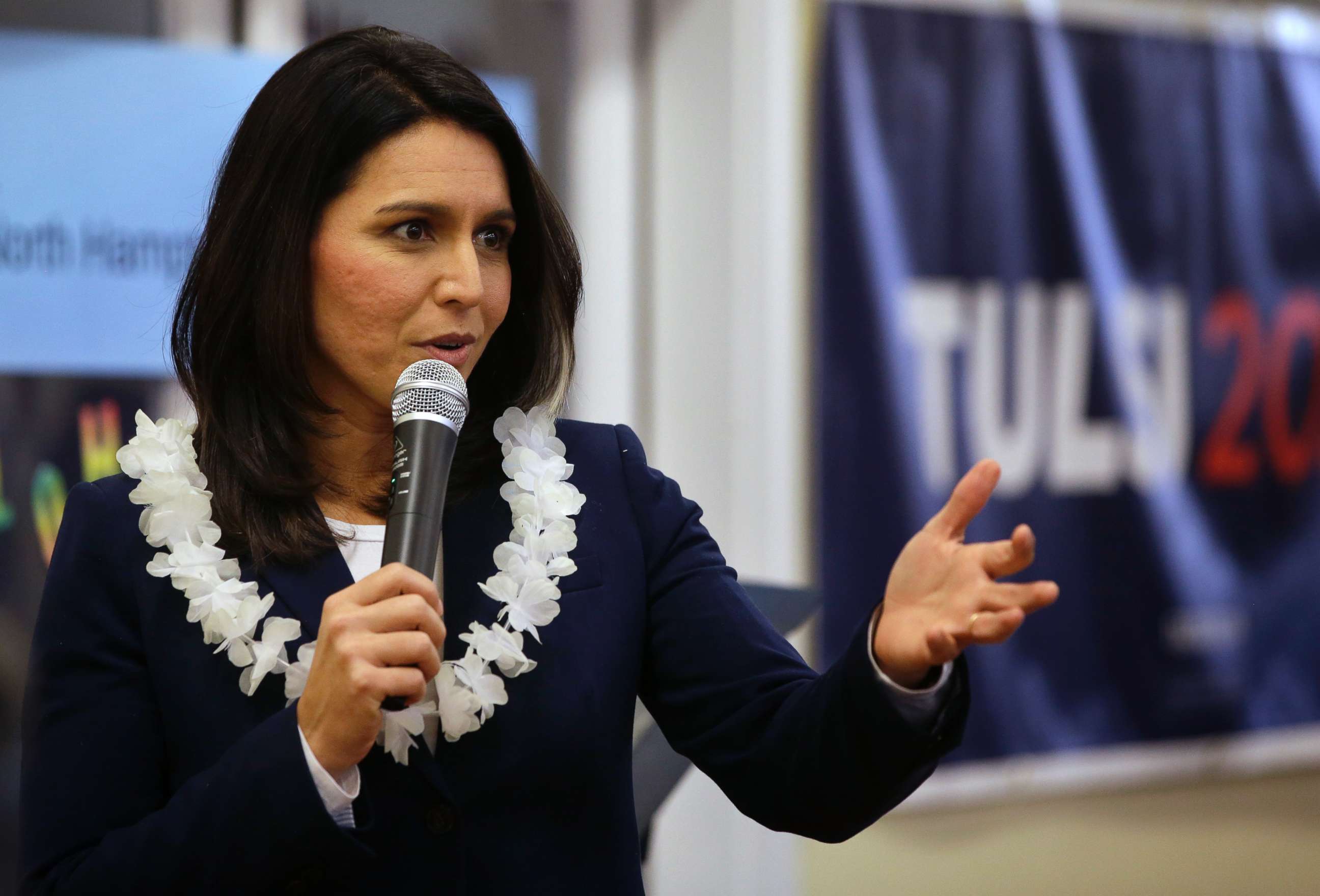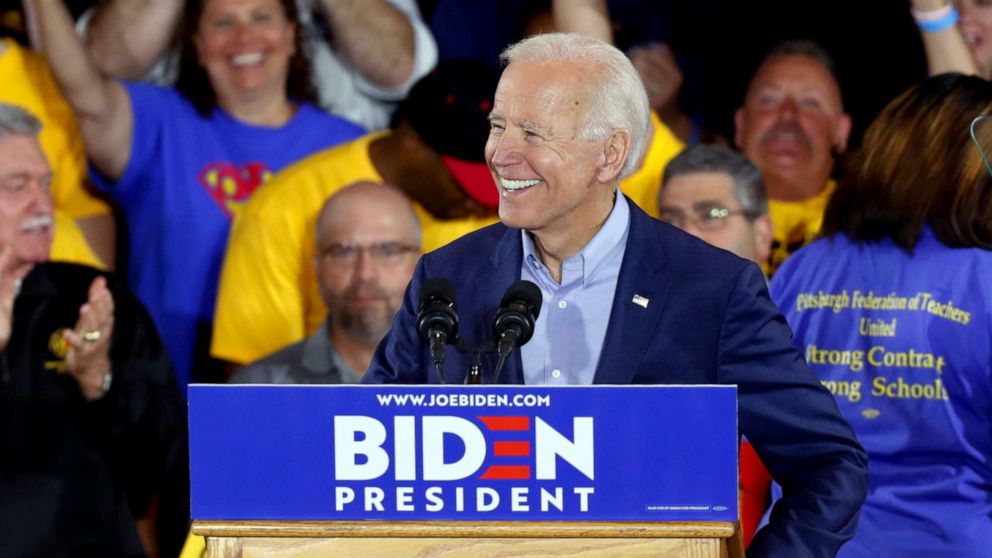Entries, endorsements and electability: Here's the weekly roundup of the potential 2020 field
Former Vice President Joe Biden's first events of his presidential campaign drew a wave of attention this week, prompting other candidates to answer questions about how they would contend with the man who has led nearly every national poll this year. But before the field takes aim at Biden, they must first compete among themselves for a spot in the first two Democratic debates.
Colorado Sen. Michael Bennet's entry into the race Thursday lifted the field to 21 major entrants, eclipsing the Democratic National Committee's 20 participant limit for the two nights of debates. Now, the candidates have mere weeks to drive up their numbers of individual donors and attempt to climb the polls so as not to be the lone person left off the stage and out of the conversation.
Here's the weekly roundup:
April 26-May 2, 2019
Stacey Abrams (D)
Abrams announced Tuesday that she would not seek the Democratic nomination in Georgia's 2020 Senate election, prompting increased speculation that she could mount a presidential bid, particularly after she said in a radio interview that day that she "keeps giving thoughts to other opportunities."
In the video in which she made her Senate announcement, Abrams, who unsuccessfully ran for Georgia governor in 2018, said, "the fights to be waged require a deep commitment to the job and I do not see the U.S. Senate as the best role for me in this battle for our nation's future."
Michael Bennet (D)
Bennet formally announced the launch of his presidential campaign in an interview with "CBS This Morning" on Thursday, becoming the 21st Democrat to enter the race and pitching himself as someone who could work across the aisle.
"I've got a track record of bipartisan work that's been harder to do during the Trump administration," he said in the interview.
The Colorado senator -- a former superintendent of Denver Public Schools and chief of staff to then-Denver Mayor John Hickenlooper, now a fellow Democratic presidential candidate -- also released a video outlining some of his positions, including a public health care option. It's "not Medicare for all," he says, explaining that he doesn't want those with employer and union-provided insurance to give up their plans.
Joe Biden (D)
After entering the presidential race last week, Biden appeared on ABC's "The View," was interviewed with his wife, Dr. Jill Biden, by ABC's Robin Roberts, co-anchor of "Good Morning America," and then held his first campaign event Monday in Pittsburgh, before continuing on to Iowa for a two-day tour of the Hawkeye State.
In Pittsburgh, Biden courted union voters and earned the endorsement of the International Association of Fire Fighters, a decision met with derision by President Donald Trump, who launched a tweetstorm Wednesday in the wake of the announcement.
During the interview that aired on "Good Morning America" Tuesday, the Bidens addressed issues from the former vice president's past that have drawn criticism, including the treatment of Anita Hill during Supreme Court Justice Clarence Thomas' 1991 confirmation hearing before the Senate Judiciary Committee in which Biden said she wasn't "treated well."
"I apologize again because, look, here's the deal. She just did not get treated fair across the board. The system did not work," he added.
Cory Booker (D)
The New Jersey senator wrapped up his "Justice for All" tour last weekend before heading back to Washington to take part in the Senate Judiciary Committee questioning of Attorney General William Barr.
During the hearing, Booker took issue with the language Barr used in his press conference the morning of the release of the Mueller report, saying his remarks were "alarming" and called "into question [his] objectivity when you look at the actual context of the report."
He later called for Barr's resignation, tweeting that "it's become clear that [Barr] lied to us and mishandled the Mueller report."

Pete Buttigieg (D)
The South Bend, Indiana mayor and his husband Chasten are featured on the cover of Time Magazine this week, and the pair's relationship and Buttigieg's recent rise in the presidential field are featured in a profile.
Buttigieg calls himself a "policy guy" in the story, elaborating, "Every good policy that I've developed in my administration happened not because I cooked it up on the campaign, kept the promise intact and then delivered it, but because I stated a priority in one of my campaigns, interacted with my legislative body and my community, and developed something that really served people well."
Chasten Buttigieg was the focus of his own Washington Post profile, in which his coming-out story, bout with homelessness and popularity on Twitter were detailed.
Julian Castro (D)





